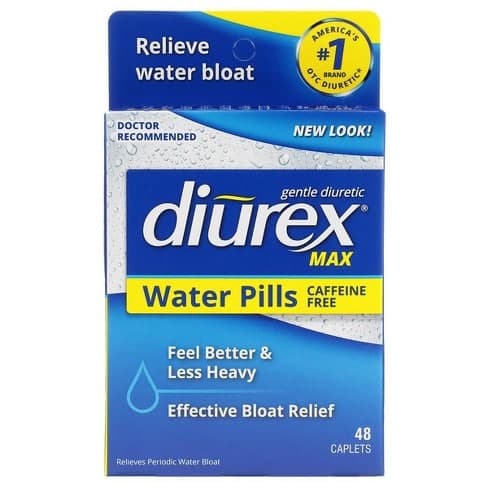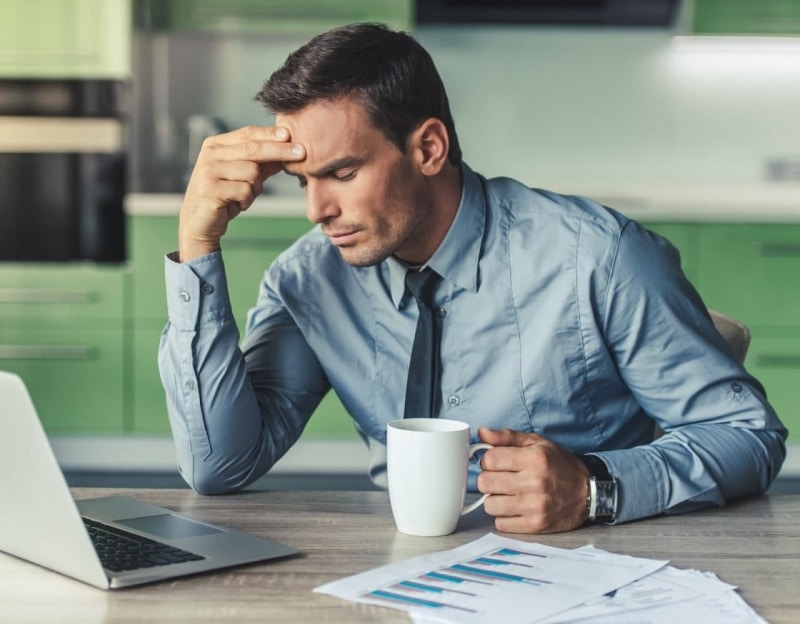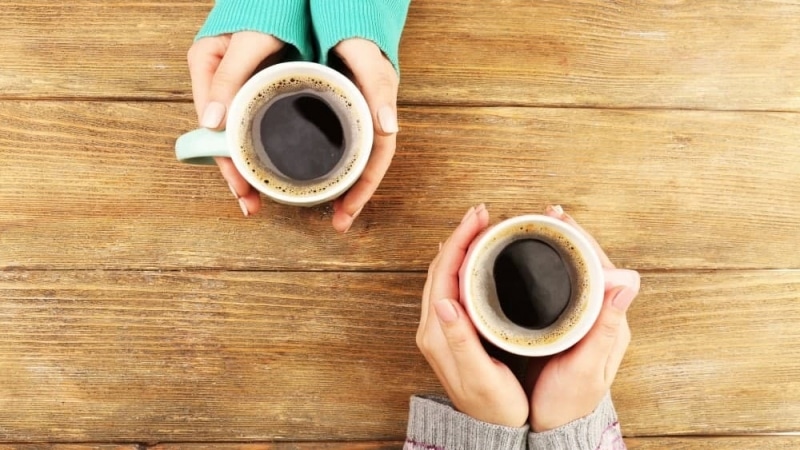Coffee is one of the most likable drinks nowadays. Towns around the world are filled with shops. Every marts are loaded with caffeinated products, which sometimes makes it difficult to choose which to buy. This trend makes drinking coffee a natural habit to most people. Some could not go a day without consuming any caffeine. However, there are debates about how caffeine can actually be dehydrating. Drinkers may need to limit their consumption to moderate amounts. So does it means that coffee can dehydrate you?
The reason for this consumption can be rooted from the fact that coffee can help people stay awake and keep them productive. Or just simply because it tastes good and is addictive.

This brings me back to about a week ago, I was scrolling through Tik Tok as my regular self. Then I came across a video explaining how coffee can make you feel dehydrated. As a person who likes caffeinated goods, questions about whether this is true arised. It actually reflected back to the time I needed to go to the toilet every 10 minutes. Fearing that I might have harmed my body by drinking coffee, I quickly looked through the comments. Surprisingly, it is loaded with different opinions, some stated that coffee does not affect anything, some believed it does make you more dehydrated, some stated it depends.
This article will serve to explore whether drinking coffee causes dehydration and solve the worries of regular coffee drinkers in this particular claim of caffeinated coffee.
Contents
Background Of Drinking Coffee Causes Dehydration Claim
The claim that drinking caffeinated coffee can dehydrate our body more did not just occur recently. It can be stemmed back to a study back in 1928, by professor Lawrence Armstrong at the University of Connecticut. The research suggests that people who drank coffee or caffeine containing beverages most likely to experience an increase in urination. Specifically, increase 50 percent than those who do not drink those beverages.

Moreover, it also showed that caffeine was a diuretic. Which makes consumers lose a huge amount of water in their body. The ideology soon started to be widespread which started the reputation that coffee makes you feel dehydrating and can lead to affecting our mental health.
Clashes Of New Claims
However, the past claims were argued to be invalid and misinterpreted in different ways. Scientific researches suggested that it is more complicated. To think of it, the small increase of urine production and output has almost no relative connections to hydration of our body. For instance, an increase in fluid consumption would automatically produce output in our urine. Just like when you drink water, if you drink more water your urine will produce more output but that does not stop us from drinking water.
New Researches And Findings
With the ongoing clashes, more research has been conducted to further study the effects of caffeine intake. One of the research shows that there is a small diuretic effect on regular coffee drinkers as they have created strong tolerance to it. But there is no evidence showing that caffeine consumption as a regular basis would lead to a severe fluid loss or dehydration.
Another individual study has shown that coffee and caffeinated beverages do not harm the imbalance of electrolytes in our body. Which is one of the significant factors in hydration. Furthermore, another study in 2014, illustrated to support the above claims that caffeine does not input significant effects on fluid balance in our body, nor affect the hydration status for regular coffee drinkers.
Diuretic: What is it?
We have come across a term called “diuretic” and some might wonder what it means. So, diuretic is a substance or material that causes your body to boost more urine production than our regular basis.

Diuretic can also be called a water medicine which helps in clearing the sodium (salt) and water (extra fluid) in our body. People who take this pill are mostly experiencing high blood pressure, heart failures and kidney disease. Because extra fluid can cause difficulties in our heart’s well being and affect breathing.
Caffeinated beverages as diuretic
To think of it, it is common sense that we can think that coffee also works similarly to water to our body. Because, there is similar water content if we drink a cup of water and a cup of coffee. For instance, when we make instant coffee, we add boiling water to produce our coffee. So, the mild diuretic effect of coffee can be pretty similar to water.
To be more specific, the diuretic effect is traced from the caffeine content in the coffee. When you drink coffee, the caffeine passes through your bloodstream through your mouth, then throat, and will go to your liver. Then, your body will absorb the substances and break it into caffeine compounds. Which eventually affects your brain, organ, and your body’s performance. The caffeine in coffee has a mild diuretic effect which urges our kidneys to produce more urine by releasing extra sodium and water.
This would also explain the reasons why you feel the need to go to the bathroom more often when you drink caffeinated beverages. And, you might wonder if it affects your hydration status.
To answer this, first let’s understand how much caffeine is contained in a cup of coffee.
Caffeine Content In Coffee
The caffeine content varies according to different types of coffee. Some types have higher caffeine content while others have little, which has different diuretic properties. Now, let’s look at the main types of coffee.
Brewed coffee
Brewed coffee is one of the most popular beverages around the globe, especially in America. The process in making this beverage is through adding boiling water on grounded coffee beans which can be done by a filter or a French press.
An 8 ounce or 240ml of this type of coffee holds up to 95 mg on average.
Espresso
Espresso is a strong black coffee. It is made by adding hot boiling water on small grounded coffee beans with espresso makers.
It is high in caffeine containment as one shot of espresso has around 63 mg of caffeine.
Instant coffee
Most of us may be really familiar with instant coffee since it is cheap, fast to make, and importantly, quite delicious.
It is also not far apart from brewed coffee as it is made from frozen brewed coffee beans or spray- dried. It is very simple to make instant coffee as you only need to put a pack or 1-2 tablespoons of coffee in a cup and mix it with hot water.
Instant coffee has a relatively low amount of caffeine compared to regular coffee, as a240 ml of instant coffee accumulates up to 30-90 mg of caffeine.
Decaf coffee
Decaf coffee is a shortcut for a term “Decaffeinated coffee” which means it is made of coffee beans that are 97% caffeine removed.
This type of coffee contains a minimum amount of caffeine but it is not absolutely caffeine free. An 8 ounce of this type holds up to 7 mg of caffeine.
The Real Question: Can Coffee Dehydrate You?
Experts and evidence shows that coffee is very unlikely to dehydrate you. However, a large amount of caffeine contributes to your diuretic effects and urges you to pee more often.
The claim can be showcased in various research and studies. Firstly, in 2005, a research was conducted using personal experimentation, absorbing personal data, on the diets of 59 healthy males for 11 days who had regular caffeine intake. The results of individual responses indicate that caffeine has no significant differences in terms of hydration compared to those who do not consume it.
To simply put, you are unlikely to lose more water or dehydrate more if you drink coffee rather than water.
Drawback of caffeine
Even if caffeine beverages are unlikely to dehydrate you, it still holds some negative consequences if we exceed a moderate caffeine consumption.

Caffeine affects people differently, as some regular drinkers would drink 3-4 cups a way and experience no side effects while some could only take a shot and experience headache. Regardless of each person’s tolerance, caffeine consumption of more than 5 cups, specifically, when caffeine consumption exceeds 9 milligrams of our body weight. It could cause serious side effects such as headache, dizziness, anxiety, trembling and more.
Benefits of caffeine consumption
Nothing is completely bad, and that also applies to our coffee drinking. There are numerous studies that demonstrate that it has several health benefits.
An expert personally believed that a coffee bean does not only accommodate caffeine, it actually holds more beauty. For instance, it contains anxiodicate which can reduce the momentum of damaged cells in our body.
Moreover, research also shows that coffee can act to combat liver cancer as well as protecting from diseases. For example like diabetes, low blood pressure and even depression.
Can You Drink Coffee As Part Of Your Daily Fluid Intake?
By seeing both drawbacks and benefits, you might wonder whether you can still drink it as a normal lifestyle.
Well, like mentioned, coffee contains mostly water and staying hydrated would not be a big deal. According to Hailey Goraki, RD, who is a registered dietitian nutritionist, suggested that there is no significant difference of qualities between coffee and water, if we consume it rightfully.

However, should you just only consume caffeine products instead of water ? The answer is a big big no. Even caffeine helps to your fluid intake, drinking water is still the best bet for your health, balancing nutrition and keeping you hydrated.
In a nutshell, if you’re not feeling like drinking water because you might think it does not taste like anything. Your daily cup of coffee does help increase your total body water.
Conclusion
To sum up, does coffee dehydrate you? The answer is coffee does contain caffeine which can cause some sort of diuretic effect, making you want to pee more. However, the claim that high caffeine products can dehydrate you and create a significant diuretic effect is proved to be invalid.
Although coffee does really not dehydrate you. But coffee appears to have some drawbacks as it can cause headaches, dizziness to those who are not used to it. However, a moderate daily coffee intake, for instance, one or two cups of coffee would be ideal as it gives you more nutrition and keeps you away from dehydrating.
To coffee lovers out there, don’t worry, the rumor that says coffee does dehydrates you is false. You can keep on enjoying drinking it but remember that 1 to 3 cups of coffee is just right and don’t forget to balance your water consumption to the same amount or more.
References
- Does Coffee Dehydrate You? | Healthline | Ryan Raman
- Does drinking coffee make you dehydrated? | ABC Everyday
- Does Caffeine Really Dehydrate You? | Live Science | Kate Goldbaum
Should You Worry About Caffeine Dehydrating You? By SciShow
